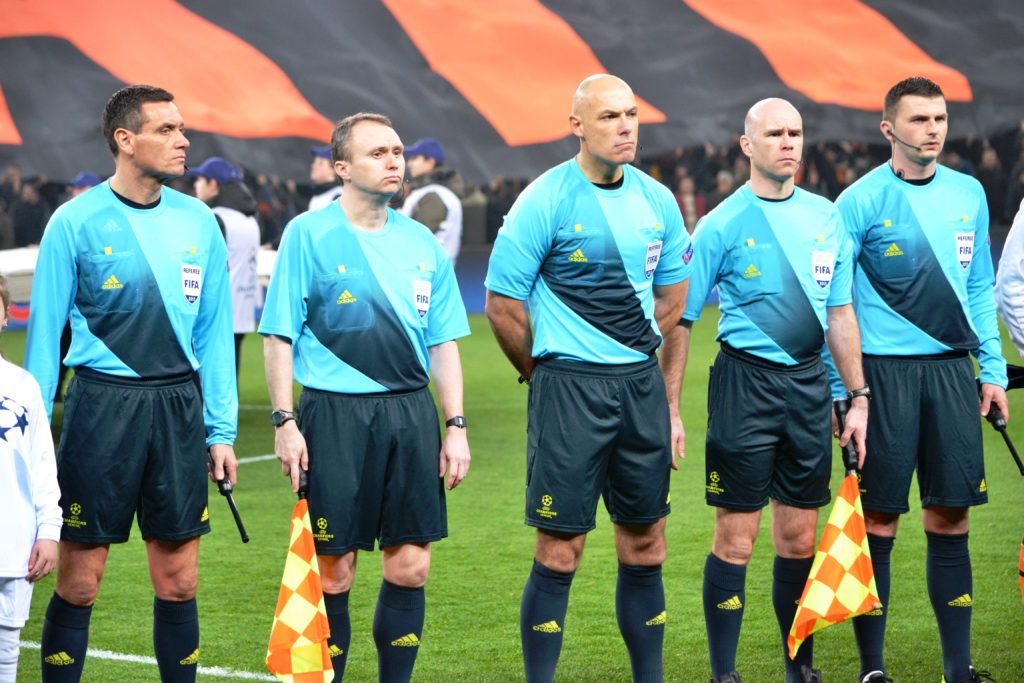Following the airing of two landmark documentaries around the topic of suicide in the UK this week, much of the conversation which followed focused on access to health services, both physical and psychological. The figures indicate that men, in particular, traditionally aren’t in any hurry to seek help, though with mental illness affecting up to one in three referees every year, what discernible differences are there in this specific group (officials) with regards to ascertaining help?
In 2019, The British Journal of Sports Medicine conducted a review of 52 studies comprising of 13,000 athletes across 71 different sports and found that stigma is the number one reason why mentally unwell athletes don’t seek help. Referees too, fear that mental illness will be seen as a weakness, concerned they will not be appointed to key fixtures or cup finals, as well as anxious about the lack of understanding among referee managers and coaches. This is in accordance with the attitudes held by the majority of the population, where most won’t seek help due to the stigma of mental health and the perception of being ‘weak’.
A key factor for officials is the competitive conditions they are in. Sporting environments, particularly groups of referees, attract personality types that are often competitive and driven to succeed. These personalities, alongside officials believing that coaches and managers have low mental health literacy, breed an environment where opening up about their struggles leaves them vulnerable.
My experience as a Resilience Coach & Mental Toughness Practitioner facilitating Mental Wellbeing Programs for referees of all levels, provides some insight into what may be happening for male officials, in particular. In these Programs we discuss the concept of the human mind and body being wired for survival. While the survival, or fight and flight, response is extremely useful when faced with immediate physical danger, like a lion attack, it is less useful when it is activated by more everyday occurrences like being cut up in traffic. One key everyday danger that referees respond to is fixture appointments. The officials I work with highlight the fact that there are only a certain number of fixtures for which referees can be appointed, and there are more officials than fixtures. Every week, they are indeed in survival-mode, and part of that survival defence mechanism is to look strong, not exhibit weakness, including hiding any mental health issues for fear it will impact their role in the team.
Elite refereeing culture places heavy training demands and a constant drive to improve performance, which only serve to heighten the risk of speaking out. And whilst there is not always a direct relationship between mental health and performance, they often overlap. This fight for perfectionism, gaining feedback on how to improve and feelings of not being good enough, affects esteem and therefore mental health. When performances begin to deteriorate, it can accentuate the mental health struggles further, thus beginning a vicious cycle.
Encouragingly, there are emerging examples of players and clubs in sport challenging the stigma around mental health. Players are perhaps slowly becoming more comfortable asking for time out in order to focus on mental health, releasing pressure before re-entering their sport. An uplifting example of this attitude shift happened in 2015 when Australian Rules football club, Sydney Swans’ player Buddy Franklin publicly acknowledged his mental health issues before taking a break from Australian Rules football. Throughout the process he was actively supported by his club, friends, family and teammates and made a successful return to the game.
Another key factor for referees is that the age at which officiating demands increase is also when mental illness symptoms are most likely to emerge, between 15-25 years. For this age group the number one cause of all illness is mental illness. For referees, this is the time when they typically begin their ascent up the ladder in order to progress to officiating at a higher level or on an elite level league but often aren’t making the final team or reaching the heights they imagined. It is easy for disappointment, self-doubt or anxiety to set in and challenge a young referee’s officiating identity and resilience.
The televised documentaries this week allow us to take the opportunity to reflect on ways to improve overall health, including mental health literacy among referee coaches and managers. It’s a helpful reminder to acknowledge that referees are human and can feel vulnerable at times, so reducing stigma and normalising mental health concerns, can hopefully lead to better conversations and outcomes. One men’s mental health and sport campaign tackling this issue is Walking And Talking Charity Hikes (WATCH) (#WalkingsBrilliant), led by Mark Crossley, Nigel Jemson, Chris Kirkland, Jon Parkin, Dean Windass and Steve Howey.
You may want to ask your county, regional or national association for their mental health and wellbeing policy. It is likely that they know what to do when faced with physical health issues (first aid kit, concussion policy, trained first aiders, referral pathways) but do they have the equivalent plan in place for mental health? If not, this is an opportunity to be a catalyst for change.
Documentary Links:
At The Third Team I work individually and in collaboration with different professionals where I have developed workshops associated with Resilience and Mental Toughness Development to help referees. The workshops are interactive, where referees are encouraged to open up and share their experiences to help each other.
Feel free to contact me if you’d like to know more about my workshops and how I could help you or your officials.
Best Wishes,

Nathan Sherratt
Referee Educator & Managing Director of The Third Team

Nathan Sherratt
Nathan Sherratt, Referee Educator, Resilience Trainer and Managing Director of The Third Team. A Mental Toughness Practitioner based in County Durham, North East England.


